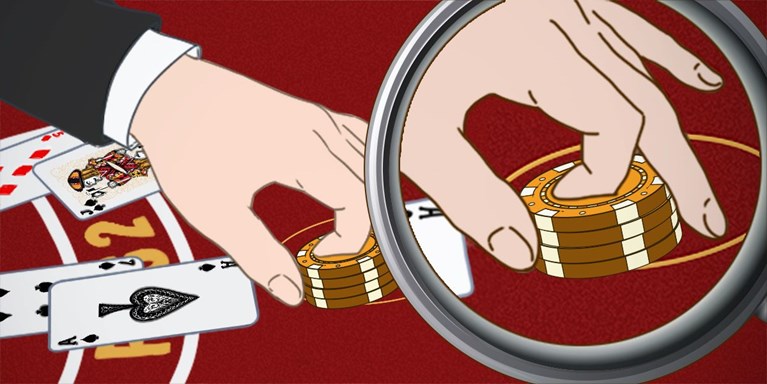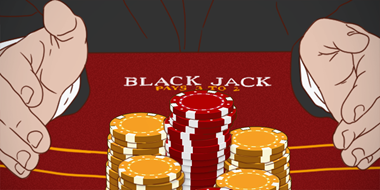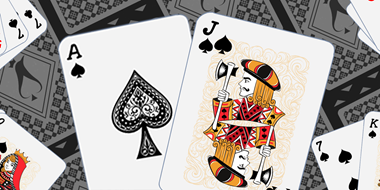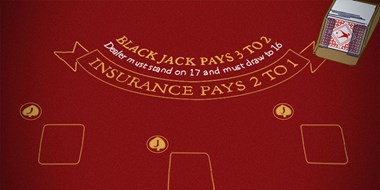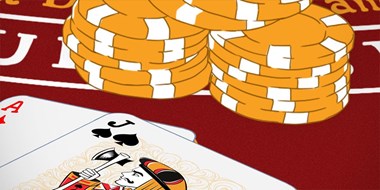When players lose at blackjack it is often not their fault, or so it seems. People who lose in casino games often claim they are not to blame, and merely the victim of bad fortune. Many would never accept for one moment that perhaps their lack of basic blackjack knowledge was a factor in some of the hands they lost. Instead, often it is actually someone else’s fault, and in the case of blackjack, that means other players at the table.
In this article, we're going to discuss:
In this chapter we will look at the effect of other players at the table, the importance of winning runs, probability, and whether the dealer can influence your success. Hopefully by the end you will realise that most of what goes on around you at a blackjack table has little effect on how well you do, and that success lies in your hands more than anyone else’s.
We will expose a raft of myths and show that there is little, if any evidence, to back up the claims they make. Let us take a look at the game myths that players repeat on a regular basis, which have spread like wildfire amongst players for many years.
EXPOSING THE BLACKJACK MYTHS
Here are the most common myths that do the rounds amongst blackjack players:
I’m Due A Win – Many players do not comprehend the fact that individual hands have no influence on subsequent ones. If a player loses a hand, the odds of them winning the next one are the same as always. There is no higher force ensuring things even out, even though blackjack is fair compared to other live casino games. The law of averages should see a player win about 48% of hands in the long-run, but over shorter periods you cannot predict success rates.
Play At Tables With A Losing Dealer – as above, some players think that runs of success or failure are down to more than simple luck. But with a dealer, that is precisely what it is and a dealer that has lost a succession of hands is no more likely to lose subsequent hands. Sometimes a dealer will have the biggest blackjack winning streak, and sometimes the opposite will be the case. It should never have any bearing on what table a player should choose as such runs are down to chance. Blackjack is fair and also random.
Assume The Dealer Has A 10 Hole Card – some players think that because there are a variety of cards that rank as 10 (picture cards and 10s themselves), then the dealer probably has a 10 in the hole. They then alter the way they play hands. It is unlikely to be the case. 16 of the 52 cards in a deck have a value of 10, so 31% of the time you would expect the hole card to be of this value. Play to the basic strategy, as this accounts for all hole card possibilities and evaluates the poker card shoe. This is similar to the myth that you should never hit on a 12 against a dealer’s 2 upcard, due to the misguided sense of the inevitability of drawing a 10 value card.
A New Player Mid-Shoe Will Cost You Money – players genuinely believe that winning runs have been broken by a new player entering the fray. There is no logic to such a belief. The number or order of players at a table does not alter each other’s chances of success.
A Picture Card Will Be Followed With Another Picture Card – in fact the opposite is the case, as if a picture card is drawn, then that is one less in the poker card shoe, meaning the likelihood of another one immediately being drawn is reduced.
The Key Aim Of Blackjack Is To Score As Close To 21 As Possible – all players want to get a score of 21 naturally, but that is not the solitary aim of the game. The real aim is to beat the dealer by having a higher final hand, or not to bust before the dealer does. Trying to get as close to 21 as possible would see players busting more often.
Another Player Is Causing Me Losses – the actions of another player can never cause you to lose more. Players tend to focus on fellow players taking cards and its consequences for them. But for every action of a fellow player that is detrimental to you, there will be another action that helps you. Whether they are good or bad players, your chances of success over time remain the same.
You Should Always Stand On A Soft 18 – this is not true if the dealer’s upcard is 3 through to 6. In this case, doubling down is to be advised. Hitting against a high value upcard may also be the best option.
BETTING SYSTEMS BOTTOM LINE
Like many other forms of gambling, blackjack is associated with many myths and tall tales. The problem is that many players believe such myths and adjust how they play because of their misguided beliefs. If you truly want to succeed more at blackjack, then you must separate fact from fiction, ignore the myths, and follow tried and trusted strategies that will help you become a better player. Additionally, it's crucial to evaluate the role of blackjack side bets, if any, and how they may impact your overall strategy. Follow this guide, and you will be on the right path.


